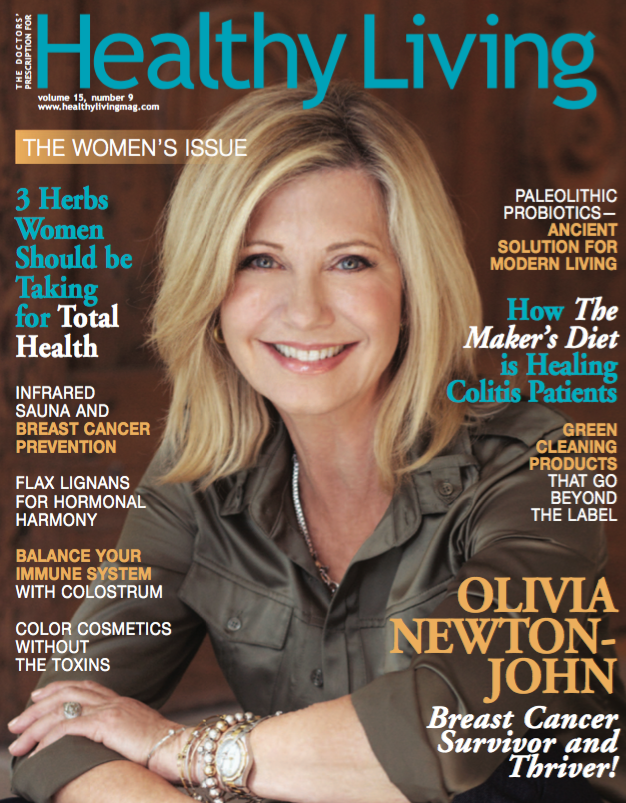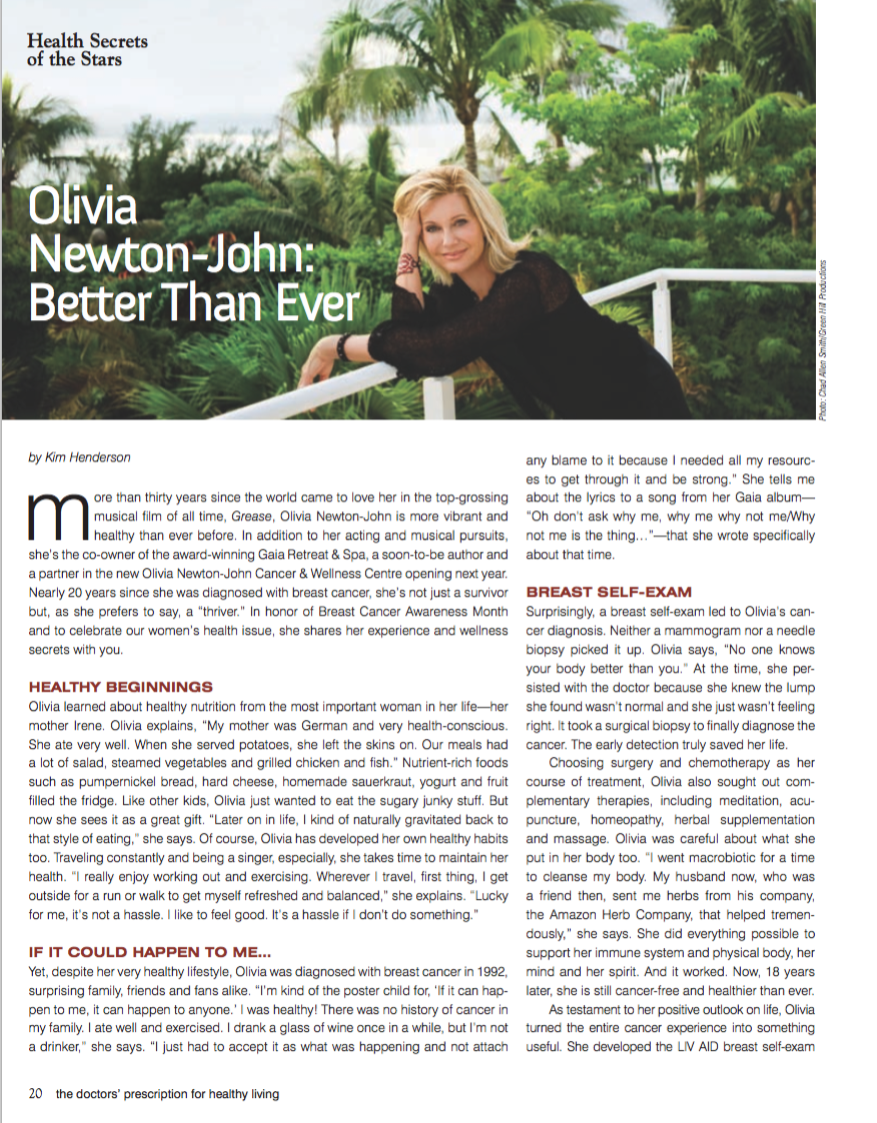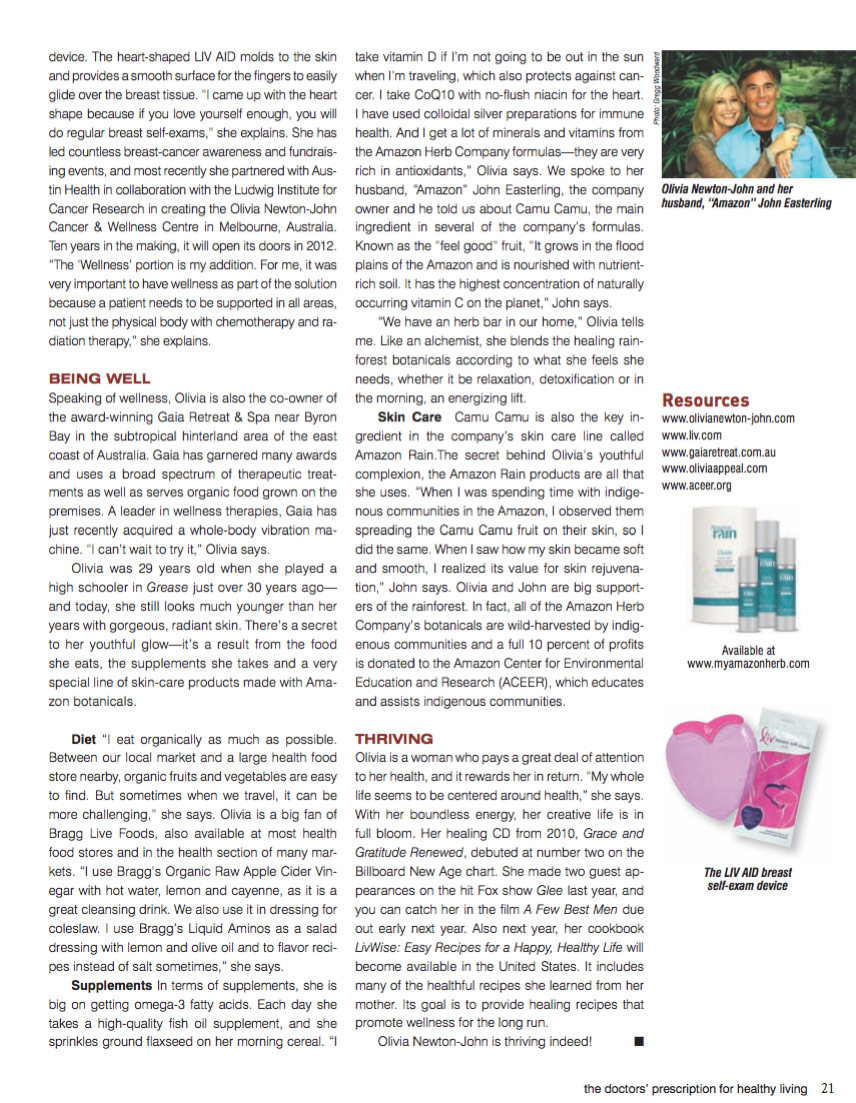
It has been a long time since I’ve posted a blog here, but today called for it. The news hit a few hours ago: Olivia Newton-John has passed away. My heart goes out to her husband, daughter, family, and friends.
I remember first hearing her voice on the radio when I was a young girl. It was distinct and beautiful, like Joni’s Mitchell’s, but all its own. Then in Jr. High School, Grease was released. I saw it multiple times with my teen friends. We learned the songs and practiced the dances. And oh how we wanted to be Olivia!
I remember one early summer evening in Los Angeles, we jumped on top of car parked in a driveway facing Sunset Boulevard near Barrington Avenue and reenacted “Greased Lightning” for the rush-hour traffic, receiving many approving and supportive honks from drivers as they passed by. In the 80s, Olivia remained in the charts with hits like “Let’s Get Physical” and many others. From time to time, friends would see her around town – especially in Malibu at Something’s Fishy Here. (Those who remember know!) And in the 90s, we shopped in her retail store called Koala Blue.
In my adult life, I came to know her in a different, more personal way. She was a well-known breast cancer survivor. My work as editor of Healthy Living Magazine connected me with her for an article on Breast Cancer Awareness (cover image above, article below). One day I found myself talking to my childhood superstar about how her mother cooked wholesome food for her as a child and the impact it had. I spoke to her husband as well, Amazon John Easterling. They were very committed to wellness. Coincidentally, during the interviews, I learned about their advocacy work for tropical rainforests. I was just finishing up a book on the same subject. Several months later I reached out to them again to ask if they would write the foreword to my book, and they graciously agreed. I was thrilled!
Having their endorsement with the foreword elevated the book’s profile, and helped to ensure a national order for all the Barnes and Noble stores. The book got featured on the chain’s Earth Day display tables across the country and even picked up some awards. I’ll be forever grateful to them both. I know they agreed because they genuinely cared about the rainforests, and they believed in the book’s message about individuals making informed consumer choices that could make a difference for tropical ecosystems.
So, in honor of Olivia Newton-John and her husband, John Easterling, I am posting their foreword below. I hope it inspires you to support the rainforests of the world or even make a donation in her name. The organization they supported is called the Amazon Center for Environmental Education and Research. They have served on its board for many years. You can link to it here: https://aceer.org/donate/
FOREWORD from
50 Simple Steps to Save the World’s Rainforests by Kim Henderson (Freedom Press, 2012)
For centuries, explorers and treasure hunters have been drawn to the world’s rainforests in search of wealth and fame. The allure of the rainforest’s secrets has pulled thousands into the jungle to try to break the code of its many marvels and unravel its mysteries. Lost cities of gold, advanced civilizations that have disappeared, diamonds and mineral mining have been historic drivers of this interest. More recently, the demand for lumber, cattle ranching, oil exploration and soybean farming have placed unprecedented pressures on an already diminishing rainforest. These threats beg the query, can our rainforests survive another generation? Will tropical ecosystems pass a tipping point and not be able to regenerate? The real question is, what is the truest value of the rainforest to our species, and how do we realize this value in a sustainable way?
The Amazon rainforest, in particular, is our planet’s greatest natural resource. We may have lost half of our planet’s rainforests in the last 100 years. Another alarming statistic is that of an estimated 4 million indigenous Amazon rainforest people living in 1900, only 200,000 remain. Only 2 percent of the Earth’s surface remains rainforest, yet 50 percent of all plant and animal species are represented there. It is home to
more plant and animal species than any other ecosystem on Earth. It produces almost a third of our oxygen and is the largest climate stabilizer. Healthy rainforests absorb carbon emissions from the atmosphere. Cutting down and burning rainforests release the stored carbon back into the atmosphere, contributing to global warming.
There are so many medicinal and therapeutic plants in the Amazon that it is called the “natural pharmacy to the world.” The research of Dr. James Duke has linked thousands of beneficial compounds naturally occurring in rainforest plants to potential benefits for the most common diseases in the developed world. Seventy percent of all plants that have anti-cancer activity come from the rainforest, yet only a tiny 3 percent have been scientifically studied for their therapeutic benefits. Not only is the rainforest full of unique chemical and nutritional compounds, there is an innate plant intelligence that resonates through the composite of the rainforest.
We are grateful for these rainforest plants as they have substantially improved our health in times of crisis, and we use them daily as part of our health regimen. In the last 20 years that we have been going to the rainforest, we have seen dramatic changes both good and bad. We are optimistic about the future because more and more conscious people are realizing that tropical rainforests are more valuable alive than dead.
It is not just a novel idea to have a responsible attitude about the preservation of our rainforest. The fact is the very survival of our species is dependent on a
healthy rainforest, and we are all decision makers in our future. Every day we vote with our money and our actions. It is simple environmental economics. For most of us, it is easy to see the global value of the rainforest. However, when we acknowledge the personal value we get from the rainforest, like oxygen, we realize we each have a personal relationship with the rainforest. It’s when we make that connection that we begin to make the personal everyday choices that ensure we have access to that value. We appreciate the extraordinary inventory of new therapeutic and medicinal plants that may hold the key to reversing all degenerative disease as we know it. In the PBS documentary Return to the Amazon, Jean-Michel Cousteau’s words, “We protect what we value,” continue to ring true.
Recognize the value of our living rainforest. We are the guardians. Ultimately our individual choices taken as a collective will determine its future. The real beauty of Kim Henderson’s book is that it is so simple. Following the practical tips and guidelines on these pages can help turn the tide toward a bright future for our rainforests and ourselves.
Be conscious, be healthy, and thanks for being a part of the solution.
— “Amazon John” Easterling, Treasure Hunter and Founder of the Amazon Herb Company
— Olivia Newton-John Easterling, First United Nations Goodwill Ambassador for the Environment
Thank you, Olivia, for the impact you made on my life and countless other’s with your music, movies, and breast cancer awareness and rainforest conservation advocacy.
May your bright spirit continue to inspire from beyond the veil.


